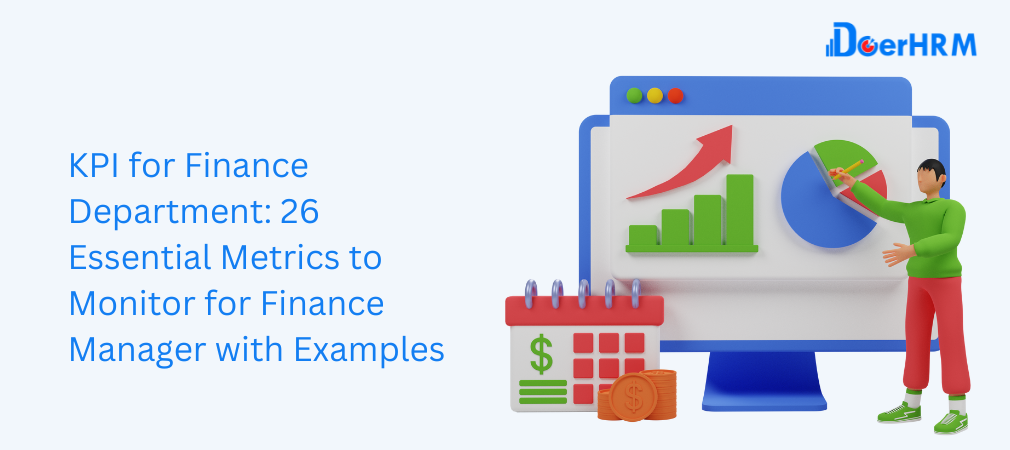
Experience the power of seamless HR management with our free trial - sign up now at https://app.doerhrm.com/app/freeregister !
Download our comprehensive guide to KPI and OKR implementation at https://www.doerhrm.com.my/download-online-kpi-okr-guide/ today.
KPI for finance Department – In today’s competitive business landscape, the effective management of financial resources is vital for the success of any organization. To ensure optimal financial performance, finance departments rely on Key Performance Indicators (KPIs) as essential tools for measuring and monitoring various aspects of their operations. These KPIs provide valuable insights into the financial health, efficiency, and overall performance of the finance department. Finance managers play a crucial role in leveraging these metrics to evaluate performance, identify areas for improvement, and make informed strategic decisions.
In this article we explore definition of KPI importance of KPIs , 26 essential metrics with examples , how KPI software help finance department.